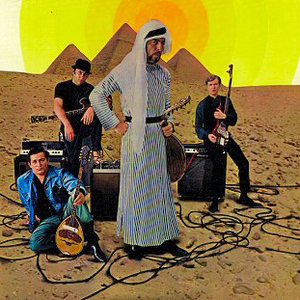
| Trackimage | Playbut | Trackname | Playbut | Trackname |
|---|---|---|---|---|
| 37334290 | Play | Karkadon | 00:00 Tools | |
| 37334291 | Play | Wala Dai | 00:00 Tools | |
| 37334292 | Play | Selim Alai | 00:00 Tools | |
| 37334294 | Play | Shisheler | 00:00 Tools | |
| 37334293 | Play | Misirlou | 00:00 Tools | |
| 37334295 | Play | Besaha | 00:00 Tools | |
| 37334296 | Play | Isme | 00:00 Tools | |
| 37334297 | Play | Treea Pethya | 00:00 Tools | |
| 37334299 | Play | Kley | 00:00 Tools | |
| 37334301 | Play | Teyul Leili | 00:00 Tools | |
| 37334300 | Play | Nahna Ou Diab | 00:00 Tools | |
| 37334303 | Play | 08- Kley | 00:00 Tools | |
| 37334304 | Play | Teyu Leili | 00:00 Tools | |
| 37334298 | Play | Halalaya | 00:00 Tools | |
| 37334306 | Play | Miserlou | 00:00 Tools | |
| 37334307 | Play | Misirlou (1967) | 00:00 Tools | |
| 88203590 | Play | Shisheler (şişeler) | 00:00 Tools | |
| 37334308 | Play | 07. Shisheler | 00:00 Tools | |
| 37334309 | Play | 02. Nahna U Diab | 00:00 Tools | |
| 37334314 | Play | 06. Besaha | 00:00 Tools | |
| 37334310 | Play | 04. Selim Alai | 00:00 Tools | |
| 37334311 | Play | 11. Misirlou | 00:00 Tools | |
| 37334312 | Play | 01. Wala Dai | 00:00 Tools | |
| 37334313 | Play | 09. Hala Laya | 00:00 Tools | |
| 37334315 | Play | 10. Treea Pethya | 00:00 Tools | |
| 37334316 | Play | 03. Karkadon | 00:00 Tools | |
| 37334317 | Play | 08. Kley | 00:00 Tools | |
| 37334318 | Play | 023_Freak_Scene | 00:00 Tools | |
| 37334319 | Play | 05. Isme | 00:00 Tools | |
| 37334320 | Play | 018_Freak_Scene | 00:00 Tools | |
| 37334321 | Play | 013_Freak_Scene | 00:00 Tools | |
| 37334322 | Play | 020_Freak_Scene | 00:00 Tools | |
| 37334324 | Play | Karkadone | 00:00 Tools | |
| 37334323 | Play | 017_Freak_Scene | 00:00 Tools | |
| 37334325 | Play | 01_-_Wala Dai-_-Devil'S_Anvil | 00:00 Tools |

-
- 52,215
- plays
-
- 3,400
- listners
-
- 52215
- top track count
The Devil's Anvil is one of those groups that could only have been signed to a label like Columbia Records in the late 1960s. At that point, the record company was desperately trying to make up for the ground and market share that it had lost during the years 1964-66, when -- with a few notable exceptions -- it had avoided rock & roll. Enter folkie-turned-rock musician/producer Felix Pappalardi, who brought The Devil's Anvil to Columbia and got them a contract to record one album. Pappalardi was born in the Bronx in 1939, the son of a doctor. He studied classical music and graduated from the University of Michigan, and came back to New York seeking work as a conductor before being lured to the burgeoning folk music community in Greenwich Village. He later worked as a backup musician and arranger with Tim Hardin, the Youngbloods, Ian and Sylvia, the Mugwumps, and Tom Rush. It was in 1966, while hanging out in the Village that he chanced upon a group of Middle Eastern-born or -descended musicians, playing at a coffee house called Feejon. Pappalardi began playing with them, and eventually they became the unofficial house band at Feejon -- the core members of the group, which took the name The Devil's Anvil, were Steve Knight (rhythm guitar, bass, bouzouki), Jerry Satpir (lead guitar, vocals), Elierzer Adoram (accordion), and Kareem Issaq (oud, vocals). Knight and Pappalardi developed a good working relationship, trading the bass and guitar spots during the recording of the group's one album, Hard Rock from the Middle East, which set the stage for their subsequent team-up together in Mountain. The Devil's Anvil never caught on as a recording act, in part because of the timing of their debut album's release. The very same day that Hard Rock from the Middle East hit the stores, the 1967 Arab-Israeli War broke out, and not a single radio station anywhere in New York (where the group was based and, thus, had its best shot at airplay) would go near the album. The members eventually went their separate ways, Knight into Mountain and the rest out of the pop music industry. Pappalardi, who was all over the group's only album on bass and guitar, as well as singing (joined by guest musicians Bobby Greg and Herb Lovelle on drums and Mike Mohel on the durbeki), subsequently emerged as an internationally known rock producer, based on his work later in 1967 producing Wheels of Fire by Cream. He formed Mountain in 1968 with Steve Knight, Corky Laing, and Vagrant's guitarist Leslie West, who spent four years as hard-rock superstars recording for Pappalardi's own Windfall label. In 1974, he formed a Japanese heavy metal outfit called Creation (no relation to the British band of that name), and began a solo career late in the 1970's -- eventually, he also began trying to write music for Broadway and television. On April 17, 1983, he was shot to death by his wife in an apparent accident. Read more on Last.fm. User-contributed text is available under the Creative Commons By-SA License; additional terms may apply.